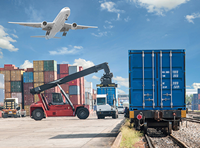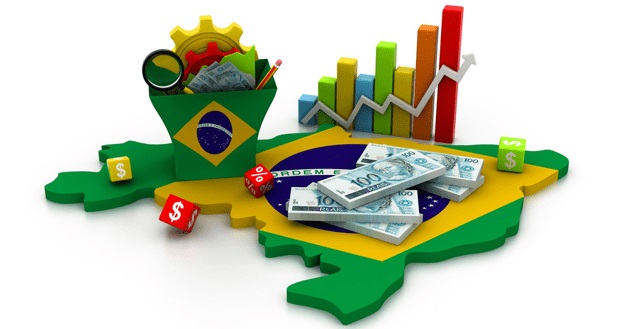
Amaral & Cia Consulting is made up of a team of highly-experienced customs brokers and entry writers.
Countries within MERCOSUL (Southern Common Market) are exempt from Brazilian import duties. These countries are Argentina, Paraguay and Uruguay. Associate members (Bolivia, Chile, Colombia, Ecuador and Peru) are exempt from some duties & receive discounts on other duties, generally depending on the reciprocal tax status provided to Brazilian exporters in these countries.
All other exporting nations must pay import tax (with the exception of specially exempted products, which are deemed to be adding value to Brazil). This tax (I.I.) ranges from 0% to 20%.This is however the first tax in a long line of cumulative taxes making the effective rate higher in reality than that quoted. All taxes are cumulative so the order in which they are applied is very important & can quite significantly alter the total cost of these taxes.

Products delivered to Brazil are subject to import duties. Brazilian government sets product classifications that determine rates for specific products. It is important to check the sub-classifications as there are a wide variation of import tax rates.
Import Tax, known as I.I.: This is a Federal tax applied to imported products. The rate varies depending on the HS code of the product being imported and in the case of trade agreements, the manufacturing country.
Industrialised Products Tax, known as I.P.I.: This is a Federal tax that applies at rates set regularly by the government. It ranges from 0% up to 300% (for cigarettes) and again, is determined by the HS code of the product.
Social Integration Program, known as PIS: This is a Federal tax applied to all business revenues at a rate of 1.65% that is used to fund unemployment insurance for workers that earn less than two times the minimum wage.
Social Security Contribution, known as COFINS: This is a Federal tax applied to all business revenues at a rate of 7.6% that is used to fund social security programs such as health, education and social assistance.
Merchandise & Services Tax, known as ICMS: This is a state tax applied predominantly to the circulation of merchandise. The tax is applied whenever the product leaves a business, regardless of whether it is sold or not. Companies transferring goods between warehouses, for example, must have documentation showing the value of the goods and the ICMS they have generated. The tax is applied in a similar method to a VAT or GST, whereby it is not cumulative and taxes paid on inputs can be offset against those payable for sales. This tax varies by product and state. It is highest for all products in Sao Paulo state, but is levied based on the destination rather than the source of the sale, meaning that although importing into a different state would create a lower initial ICMS obligation, the final result would be the same with just a smaller amount being paid at the importation stage and a higher amount being outstanding when the product is sold.
Import Agent fee: This is for an agent, known as a despachante, to process the importation through customs. A good despachante is worth their weight in gold as they can make a huge difference to the time taken to clear a product through the port, saving money in the process (see port storage).
SISCOMEX System Charge: This is the Brazilian Government's Customs system and this fee is payable for any importation. The charge is R$ 30,00 for each different HS Tariff code in the importation. Some custom brokers also charge a R$ 180,00 Siscomex registration charge for each importation.
Customs Clearers Syndicate (S.D.A.) fee: This is a union fee that is payable on all imports through Brazilian ports (Air, Sea & Land).
AFRMM - Additional Freight charge for renovation of the Merchant Navy: This fee is calculated at 25% of the combined cost of freight and insurance for all imports through a Brazilian Seaport. This charge is designed to provide funds to improve the Brazilian merchant navy fleet (tugs, etc) and streamline the aquatic transport system.
Port Storage: This is the charge for storage in Customs whilst the import process is being completed. It costs approximately R$ 260,00 per day for a standard 20ft container and obviously this total will vary depending on the speed of the import process.
Customs Clearance: This is the Brazilian Customs charge to clear the shipment. This is the process during which customs will check if the product is legally allowed to enter the country, whether it meets any required standards, that the price is a legitimate price (some importers of products have been known to value goods significantly below market to avoid taxes). This is not advised as the fines & penalties imposed when caught are significant and often include the confiscation of the entire shipment of goods.
Amaral & Cia is able to provide import tax analysis for any product entering Brazil. We can provide an import study including the following:
Estimated shipping costs from your country to Brazil for your products;
Customs paperwork required to register and nationalize your product;
Customs clearance fees and charges;
Federal and State taxes applicable to your product, along with applicable information regarding any advantages available by importing to specific states;
Local licensing and certification requirements and procedures;
Available options for local transport and storage;
For further information or to request an Import Tax Analysis for your product, please contact us...
 Led Operating Light
Led Operating Light
If you are a Hospitalar Equipment manufacturer and you need consulting services about new product distribution in Brazil...
 Orthopedic Implants
Orthopedic Implants
If you are an implant manufacturer and you need consulting services about new product distribution in Brazil...
 Operating Table
Operating Table
We can help with a very interesting opportunity to clarify doubts and to obtain an advantage, all solutions in one single place....
 Hospital Furniture
Hospital Furniture
We hope to offer your company the opportunity to introduce your product in the Brazilian market...
 Autoclave / Sterilizer
Autoclave / Sterilizer
We help medical device manufacturers obtain regulatory approval from ANVISA...
 Electric dialysis chair
Electric dialysis chair
Our consultants are also experienced in quality system audits and can help your company meet ANVISA regulations....
 Surgical Instruments
Surgical Instruments
If you are a Surgical Instruments manufacturer and you need consulting services about new product distribution in Brazil...
 Infant Phototherapy Incubator
Infant Phototherapy Incubator
Foreign medical device manufacturers who do not have a physical location in Brazil must appoint a (BRH)...
 Medical Pendant
Medical Pendant
Amaral & Cia provides qualified and experienced professionals who will take care of the whole bureaucratic processes....
 Medical Imaging
Medical Imaging
We have a team that is eligible not only the settle the communication between your company and ANVISA...
 Medical Pump
Medical Pump
Our professionals are capable of making the GMP Certification viable, increasing substantially the chances of audit approval...
 Orthopedic Implants
Orthopedic Implants
If you are an implant manufacturer and you need consulting services about new product distribution in Brazil...
 Surgical Instruments
Surgical Instruments
If you are a Surgical Instruments manufacturer and you need consulting services about new product distribution in Brazil...
 Special Alloys
Special Alloys
We developed and consolidated synergies with distributors and manufacturers to provide a bespoke service with quotes...
| AMARAL & CIA CONSULTING | |
| Av. Hilário Pereira de Souza, 406 - 28º floor | |
| Tower 2 - Osasco - São Paulo - Brazil | |
| Zip.: 06010-170 - Phone: ( 55-11) 4384-2494 | |
| E-mail: contactus@amaralecia.com | |
| Websites: | |